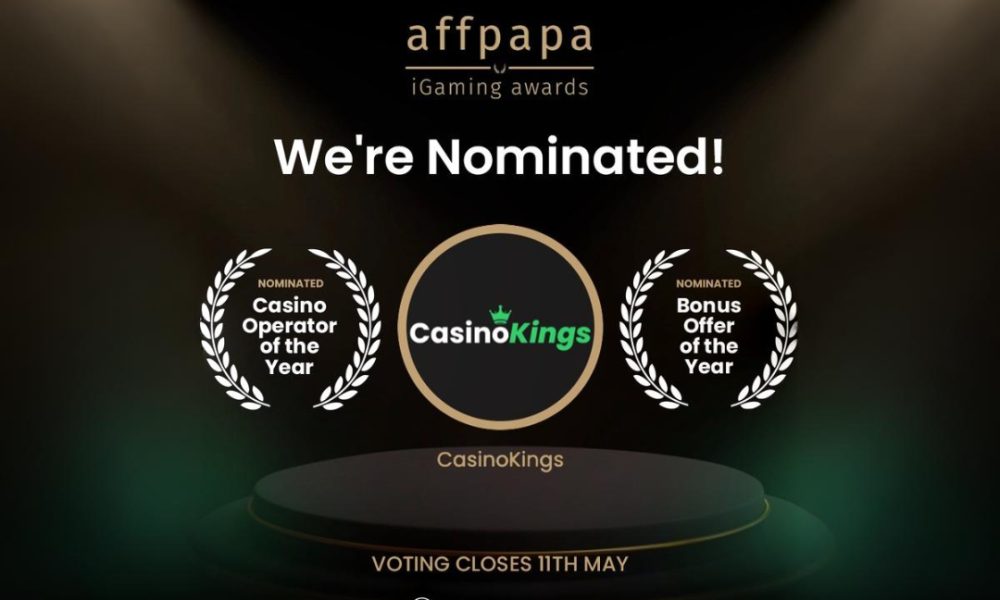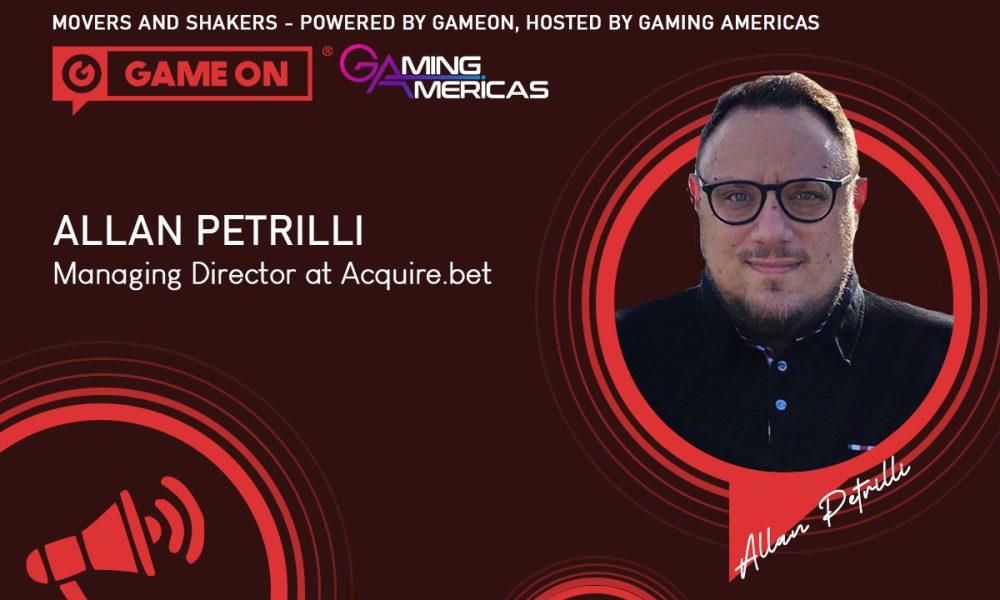norss
The Power of Reputation: How Can a Good Research Team Boost a Casino Review Platform’s Performance

The modern workplace is increasingly organised around collaboration, and each team member knows how to do their job. This applies to all sectors but is more valued in industries where readers spend real money on reviewed services.
A strong research team is invaluable for any online casino rating website. They directly impact the quality and authority of the information.
Although a team doesn’t only contain the reviewers, we, as readers, can only see the final product. This product influences our future actions, meaning that based on what we read, we decide if we’ll use a casino’s bonuses and games or not.
In gambling, reputation is crucial because the sector is already shaken by negativity. So, comparison platforms cannot joke around or hire unprofessional people.
Trustworthy names
Establishing credibility and trust is important for any casino reviewing platform. And this is why assembling a skilled and knowledgeable research team holds such significance.
Take, for instance, the approach of kingcasinobonus.uk, which places substantial importance on handpicking their authors and researchers.
By doing so, they ensure that the information provided is reliable and accurate, contributing to the improvement of players’ experiences. The power of reputation and expertise cannot be underestimated in the world of casino reviews.
Although the platform is new, its reputation has grown fast due to its trustworthy partnerships and hardworking people.
Why is reputation so important in gambling?
A good reputation is vital for any online gambling listing site looking to build long-term success and grow a real network.
The first reason is trust. Players need to know a listing site’s reviews and recommendations can be counted on as honest and impartial. Unbiased advice and honest work can be seen easily, and gamblers appreciate it.
Being the main authority
A reputation for integrity applies pressure on any listing site to maintain the standards high. As players, we want to feel protected and know that our mental health is important to the site. Ethical behaviour and Responsible Gambling Tools are mandatory, and reviewing platforms pinpoint these aspects.
A strong reputation also boosts a site’s authority and search visibility. When we, as visitors to a website keep on getting back to it for more information, the search engines understand that that this site is valuable.
Finally, any online business wants stability. We always go back to the sites that we trust for any update on the latest industry news, games or law changes.
The team you can’t see
At first glance, casino reviewing websites may appear to run themselves. But beyond the surface lies a skilled team of diverse specialists working together to build an authoritative resource. Quality content and growth are crucial, and casino listing websites need all of them.
By following KingCasinoBonus’s example, we can see that there are Authors, Editors, Reviews, and most certainly Programmers.
You might think that they all do the same thing, but you’re far away from the truth. Reviews test, while the designers add the best images to the article. The authors and editors work closely together because they are the ones who deliver the information.
Because the team works well, you can see an amazing final product that grants quality.
The best of both worlds
Reviewing platforms are a bridge between two worlds. They have to provide us with unbiased information written in a simple yet intuitive manner.
The reputation of one site can ruin a whole sector, so make sure you get your information from trusted sources. Sites like KingCasinoBonus spend over 10 hours testing and writing about each casino they mention. You can start your research there without second thoughts.
Remember that listing and comparison casino sites are free of charge, and you can use them whenever you want. You can email questions or leave comments about your experience with certain betting sites to help them build a community.
Affiliate Industry
Casino Kings Celebrates Double Nomination at the AffPapa iGaming Awards 2025

Casino Kings, a top UK online casino and sportsbook, is proud to announce its nomination for two coveted categories at the AffPapa iGaming Awards 2025: Casino Operator of the Year and Bonus Offer of the Year. These nominations recognise Casino Kings’ ongoing excellence in delivering market-leading casino gameplay, innovative sports betting experiences, and outstanding promotional offers to its growing community of players.
AffPapa iGaming Awards – Recognising the Best in the Business
Now in its third edition, the AffPapa iGaming Awards celebrate top-tier performance across the online gambling industry, bringing together affiliates, operators, and B2B providers from around the globe. Organised by AffPapa, a leading affiliate network and iGaming directory, the awards highlight excellence in areas such as innovation, player satisfaction, partnership success, and marketing creativity.
. Winners will be officially announced at the much-anticipated awards ceremony on May 28, 2025.
Casino Kings: Where Rewards Reign Supreme
Built on a player-first philosophy, Casino Kings has quickly become a favourite among UK players. And this year’s bonus nomination came from some of its most exciting current offers:
- Bet £10, Get £35 in Free Bets – A must-try for sports fans.
- 150% Welcome Bonus up to £150 + 75 Free Spins on Big Bass Bonanza – One of the most generous welcome packages in the UK market.
- Deposit £10, Get £20 + 50 Free Spins – Perfect for new and returning players.
On top of these, players can always expect something new thanks to a steady stream of daily, weekly, and seasonal promotions. Whether it’s cashback on losses or VIP perks like exclusive bonuses and dedicated support, Casino Kings keeps loyalty at the heart of everything it does.
Committed to Excellence in Online Gaming
Fully licensed in the UK and loudly committed to responsible gambling, Casino Kings offers a secure, intuitive platform for casino and sports fans alike. With top providers like NetEnt, Pragmatic Play, and Evolution onboard, the game selection is second to none, whether you’re playing on desktop, mobile, or tablet.
“We’re incredibly honoured to be recognised by AffPapa this year,” said Daniel Shannon from Casino Kings. “These nominations are a testament to the hard work our team puts in every day to deliver an exceptional experience for our players. We’re super excited to be in the running, and grateful to our loyal community for their continued support.”
The post Casino Kings Celebrates Double Nomination at the AffPapa iGaming Awards 2025 appeared first on Gaming and Gambling Industry in the Americas.
Affiliate Industry
What a Mature Market Means for US Affiliates

When the US Supreme Court struck down the Professional and Amateur Sports Protection Act of 1992 (PASPA) in 2018, it opened the floodgates to sports betting in the US. From the middle of 2018 to now, states with some form of legal sports betting went from the four states ‘grandfathered’ by PASPA to 39 states and Washington, D.C. allowing betting. That’s 36 jurisdictions legalizing in eight years.
Soon after the annulment of PAAPA, market activity exploded with several states legalizing and launching every year thereafter. Each state had millions of new customers that operators wanted to reach quickly, and unique regulatory constraints around marketing and betting. That’s where affiliate marketing stepped in, providing local expertise to help these operators rapidly establish a foothold with customers.
That gold rush has now ended. While states with significant populations like Texas and California remain without legal sports betting, the majority of players in the US have access to it. Several states won’t be legalizing sports betting every year like in the past.
If operators no longer rely on affiliates to help them conquer several new markets every year, what roles do these large, third-party marketing companies have to play moving forward? As the market matures, we’re seeing that affiliate marketing has a crucial role to play in the current marketing climate.
What the Mature Market Looks Like
Aside from the lurking possibility of states with huge populations like California and Texas legalizing sports betting, the market is broadly set. Many states that haven’t introduced betting are unlikely to change that position due to the political climate, like in Utah and Alaska.
Sports betting has never been more popular, with total GGR for sports betting hitting $13.71 billion in 2024, according to the American Gaming Association. That was a 25.4% increase year-on-year. However, sports betting has also never been more competitive. Most US states have intense competition between operators competing in saturated ecosystems.
There’s evidence this is impacting affiliate companies, with Catena Media generating 35% less from US operations in 2024 compared to 2023. Another significant operator in US affiliate marketing, Better Collective, saw US revenues drop from $113 million in FY2023 to $112 million in FY2024.
However, this doesn’t spell the end of affiliate marketing. Without the potential to expand into new states, operators are looking to strengthen and grow market share in the states where sportsbooks are already operational and companies have already conducted marketing campaigns with affiliates.
Companies that have quickly grasped this new approach have shown positive signs. Gambling.com Group reported record Q4 revenues in 2024 and finished with full-year revenue of $127.1 million, a 17% rise from the year prior.
It’s made affiliates effectively take a u-turn to recover all the ground they covered so rapidly with the expansion of the market. For example, the first online sportsbooks launched in Michigan in January 2021, so there was a flurry of marketing activity in the state before that attention moved to other states that launched in the same year, like Arizona in September. Now, affiliates are returning to states like Michigan with new approaches.
Trust and Authority and Blitz Tactics
What do these new marketing approaches entail? Rather than acquiring as many users as possible in a short time, affiliates are now focused on increasing brand loyalty. Affiliates want to increase customer lifetime value (CLV), and are more aware of this metric than the base number of how many new users are added.
That’s led to more personalized advertising campaigns with features like exclusive offers, user engagement tools, and more to keep the focus on retaining players rather than adding more and more customers. Brands are looking to build authority and trust with customers.
Adding a few customers with high CLV is priceless for operators compared to hundreds of customers who will drop off quickly. Affiliate marketing supports these platforms with tailored campaigns using specific state knowledge and personalized customer retention measures.
More Sophisticated Customers
When sports betting first started spreading across the US, most people probably confused parlay bets with the French word parley used in popular movie franchises like Pirates of the Caribbean. That was the average American bettor’s education level on the topic.
So, early affiliate marketing efforts focused on introducing common sports betting terminology to customers while explaining the benefits of sports betting brands. Guides would explain how to sign up with a sportsbook and the difference between a moneyline and a point spread. That easy access to sports betting information made it more straightforward for a broader audience to get involved.
It’s a different market eight years on. Most bettors are far more educated than before and don’t need to be babyfed the basics. If an operator wants to appeal to bettors, it must do more than just offer betting.
That’s why affiliate marketing has shifted to a more detailed and data-driven approach. Rather than explaining how American odds work, affiliate marketing campaigns now compare the value of odds between operators and highlight the best value.
Unique betting features are more important to marketing campaigns as these can help attract bettors with accounts at other sportsbooks to sign up with a new platform.
This is where affiliate marketing can help operators in mature markets, as these campaigns can highlight those strengths against other brands and make each platform’s unique proposition clear to savvy bettors.
Broadening Audience Demographics
Considering odds regularly appear on major league broadcasts and are discussed by commentary staff for games, it’s clear that betting is becoming increasingly mainstream. As sportsbooks look to consolidate and compete in competitive markets, reaching new demographics is a valuable marketing tool.
While bettors in the US are more educated now, operators are looking to attract more than just players willing to learn all the jargon. New marketing strategies must make betting relatable and appealing to various ages and demographics.
The campaign to capture the attention of bettors in their 20s should look very different from one for older players, and the best affiliate marketers are helping operators tailor these campaigns to hit specific demographics.
Affiliates’ Role as Strategic Partners to Operators
The relationship between affiliates and operators has shifted as the operators need affiliate marketing companies to deliver different marketing services. Many operators see affiliates as strategic partners rather than just sources of traffic.
These new data-driven dynamics will let affiliates play a wider role in operators’ marketing schemes, providing data integration like live stats, API odds feeds, and more. Additionally, affiliates use years of knowledge and expertise to help these platforms run campaigns through different media sources, including mobile.
Affiliates also play a helpful role in compliance and responsible gambling. Each state has its own requirements, and while no new markets are opening, states that already permit betting can shift rules around what’s available. Scrutiny from regulators is also increasing. Therefore, affiliate marketing can provide operators with tailored campaigns that take a state-by-state approach.
Conclusion
Affiliate priorities have shifted, moving into 2025 and beyond. The gold rush is over, and the market is consolidating. Affiliates need to expand their services to keep up with the evolving demands of sports betting operators, focusing on longer-term customer acquisitions rather than adding masses of low-value players.
Successful affiliate sites will be the platforms that adapt to the new mature market the fastest and with the most effective strategies. Affiliates are no longer just tools that operators use to attract broad traffic. These companies must provide ongoing data and personalized marketing strategies to provide the best support to operators.
Author: Shmulik Segal, Founder and CEO of Media Troopers
The post What a Mature Market Means for US Affiliates appeared first on Gaming and Gambling Industry in the Americas.
Acquire.bet
Movers and Shakers: The future of player acquisition

“Movers and Shakers” is a dynamic monthly column dedicated to exploring the latest trends, developments, and influential voices in the iGaming industry. Powered by GameOn and supported by HIPTHER, this op-ed series delves into the key players, emerging technologies, and regulatory changes shaping the future of online gaming. Each month, industry experts offer their insights and perspectives, providing readers with in-depth analysis and thought-provoking commentary on what’s driving the iGaming world forward. Whether you’re a seasoned professional or new to the scene, “Movers and Shakers” is your go-to source for staying ahead in the rapidly evolving iGaming landscape.
Allan Petrilli, Managing Director at Acquire.Bet, talks about paid media and the trends shaping customer acquisition in the regulated North American market
Paid media is very much the future of player acquisition in the regulated North American market, but running successful campaigns is not without its challenges.
More than ever, operators and marketers need to nail not only their creatives and messaging but also the measurement and tracking of campaigns.
Paid channels control much of the campaign and ad targeting, but with stricter privacy rules in play, it’s becoming increasingly difficult to target directly based on a user’s preferences.
Creative fatigue is as real as it is prevalent, so operators and marketers need to achieve creative iteration at scale, not only in terms of volume but also creative types and formats.
Just as important is having measurement dialed in and being able to inform the platforms of what is working – this means having a ton of actionable data at your fingertips so you can quickly decide where to spend your ad dollars.
Then there’s incrementality and uplift, which can’t be ignored, either.
The platforms themselves are starting to take more “credit” for conversions, so being able to zoom out and understand multitouch is key to making the marketing budget go further and perform better.
The great SEO slowdown
Paid media is becoming increasingly important in player acquisition efforts because there is a clear SEO slowdown. This, combined with advancements in generative AI in search, means brands are going to have to rely more on communities for growth.
Influencer marketing is no longer just getting some with a decent following to promote your brand, with micro influencers becoming a very important piece of the puzzle.
It’s also worth highlighting Discord here as it’s starting to play a significant role, especially in sports betting. This channel is all about community and trust, and we are seeing some really smart partnerships play out across the platform.
Regardless of platform and channel, operators must understand the power of their brand and that by aligning with influencers and communities that match their values, they can supercharge growth.
The only caveat here is that these partnerships need to be authentic.
Market maturation brings new challenges
As the North American market matures, we see the establishment of standard success KPIs, but it’s important that each brand really understands its own LTV and CAC data so that it can drive towards hitting its own success metrics and not just “industry” standard KPIs.
Why? Because those industry standard KPIs are often skewed by the power players that have spent big to get to where they are today, and won’t be reflective of smaller operations and brands.
It’s also important to focus on incremental growth as the market matures, understand the power of multi-touch and how each channel supports the overall acquisition strategy. Operating in silos is a recipe for disaster.
In addition to this, operators need to have a clear view of their runway – those with considerable cash can operate in more aggressive ways than brands that are relying on quick growth to fund future spend.
Ultimately, there’s no one-size-fits-all approach, and that’s why operators must focus on their own metrics for success and not industry-standard KPIs. They also need to remember that while being nimble is key, being relentlessly focused on data is what will allow them to win.
Regulations do influence player acquisition strategies, but everyone plays the same game
A lot of times, operators will focus on regulation and compliance to make excuses as to why they market one way or another, but the reality is that everyone is playing in the same sandbox and under the same rules.
How marketers push those boundaries, and to the extent they are willing to get creative, is what separates those who succeed and those who don’t.
Take Ontario, for example. You can’t promote the welcome bonus, so brands are having to engage players in other ways – those with kick-ass product marketing campaigns or that offer something truly unique are winning right now.
Of course, paid media is the perfect channel through which to communicate their epic product and unique player experience.
The post Movers and Shakers: The future of player acquisition appeared first on Gaming and Gambling Industry in the Americas.
-
Latest News3 weeks ago
The winners of the Casino Guru Awards 2025 announced: A night of celebration, integrity, and inspiration
-

 Latest News3 weeks ago
Latest News3 weeks agoThat was unforgettable! – The Boomerang Bet “AC Milan vs. Bologna Trip” Instagram Giveaway winner shared his emotions
-
Compliance Updates4 weeks ago
New Zealand Government Releases Refreshed Strategy to Prevent and Minimise Gambling Harm
-
Asia3 weeks ago
Max Level Wins PR Mandate for Riot Games in India and South Asia
-
Latest News3 weeks ago
Week 23/2025 slot games releases
-
Compliance Updates3 weeks ago
Digitain’s Paydrom Receives PCI DSS Certification
-
Latest News3 weeks ago
DATA.BET Rolls out Full-Service Sportsbook Solution
-

 Latest News2 weeks ago
Latest News2 weeks agoAtlaslive Analysis: European Gambling Market Enters €123.4 Billion Digital-First Era












